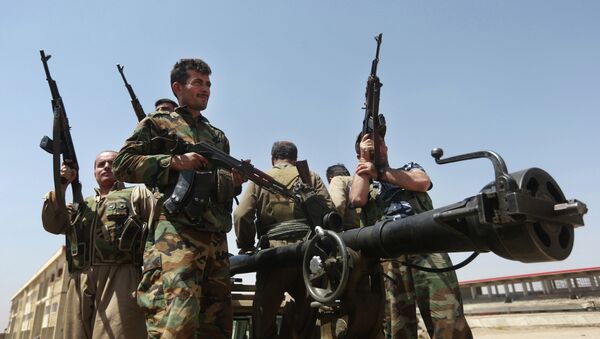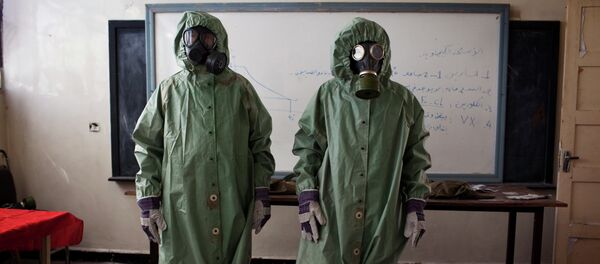A senior peshmerga official told the agency that several dozen of their fighters were attacked with chlorine rockets two days ago.
"Last Tuesday afternoon, peshmerga forces in the Makhmur area 50 kilometres (30 miles) west of the city of Arbil were attacked with Katyusha rockets filled with chlorine," the senior official said, speaking on condition of anonymity.
Germany, which has provided Kurdish forces with weapons training and arms since September, expects a Baghdad-based group of American and Iraqi "specialists" to investigate the attack believed to have been committed by IS fighters.
"German soldiers were not affected or in danger" the German defense ministry spokesman added. "The protection of our soldiers in northern Iraq is already at the highest level."
In March, Kurdish authorities in Iraq said they had evidence, supported by the results of an analysis carried out by an independent lab in Europe, that IS militants used chlorine gas as a chemical weapon in a suicide bombing in northern Iraq in January.
#ISIS has used chemical weapons against #Peshmerga in #Makhmour. #TwitterKurds pic.twitter.com/NWMzmm90eg
— Para Keta (@ParaKeta) August 13, 2015
Last month, investigators registered three incidents in which IS militants fired chemical mortar shells at Kurdish positions, according to a report by the Conflict Armament Research and Sahan Research think tanks, which later reported that shells tested chemically consistent with chlorine.
A 120-millimeter mortar shell that hit a Kurdish position near Mosul Dam in northern Iraq did not explode, and was recovered for analysis.
The groups said they also recorded two similar attacks against Kurdish fighters by the People's Protection Units in the city of Hasakeh in northeastern Syria on June 28, in which missiles containing a yellow gas "with a strong smell of rotten onions" were used. No deaths were reported, but troops reportedly suffered from burning throats, eyes and noses, splitting headaches, muscle pain, and vomiting.
"Although these chemical attacks appear to be test cases, we expect IS construction skills to advance rapidly as they have for other IEDS (improvised explosive devices)," commented Sahan Research managing director Emmanuel Deisser.
Since late 2014, there have been multiple reports from Kurdish officials, as well as from Iraqi and Syrian authorities and medical staff, that the IS has been using bombs filled with chemical agents.



